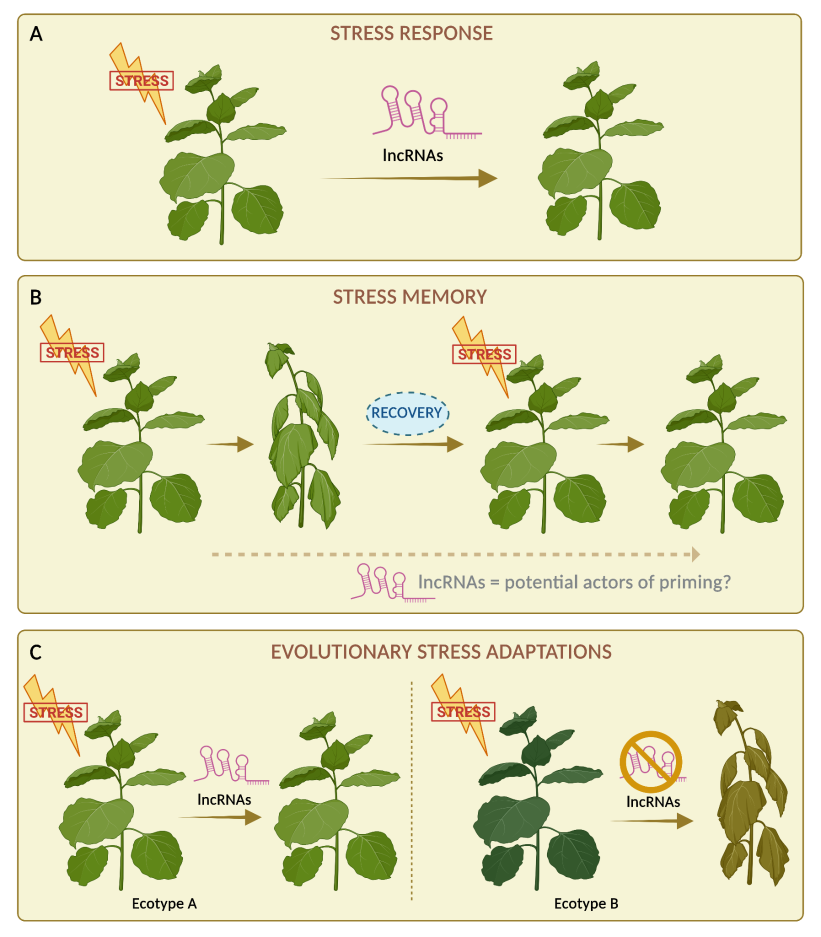A review on plant long non-coding RNAs during adaptation
From environmental responses to adaptation: the roles of plant long non-coding RNAs
The adaptability of plants to diverse and dynamic environments is crucial for their growth, survival, and reproduction as sessile organisms. To achieve this, plants have evolved complex mechanisms that allow them to recognize different stresses and modulate gene expression to respond to new environmental conditions. Long non-coding RNAs (lncRNAs) have emerged as pivotal regulators of gene expression that can modulate plant plasticity in response to environmental fluctuations.
In a review recently published in Plant Physiology, members of the REGARN team at IPS2 proposed an overview of the current knowledge regarding the functional implications of lncRNAs in plant environmental responses and adaptation. First, the article summarizes recent advancements on the role of lncRNAs in responding to abiotic and biotic stresses. Then, the authors discuss the conservation and evolution of lncRNAs within ecotypes and/or plant species. These two aspects shed light on how these molecules may contribute to the evolutionary adaptation of plants to their specific environment. Finally, the authors propose key future questions that the research field needs to tackle, such as the ability to predict the function and evolution of lncRNAs, the possibility of selecting specific lncRNAs to increase plant stress resilience in agriculture, and the characterization of lncRNAs that are involved in stress memory.

01/03/2024
